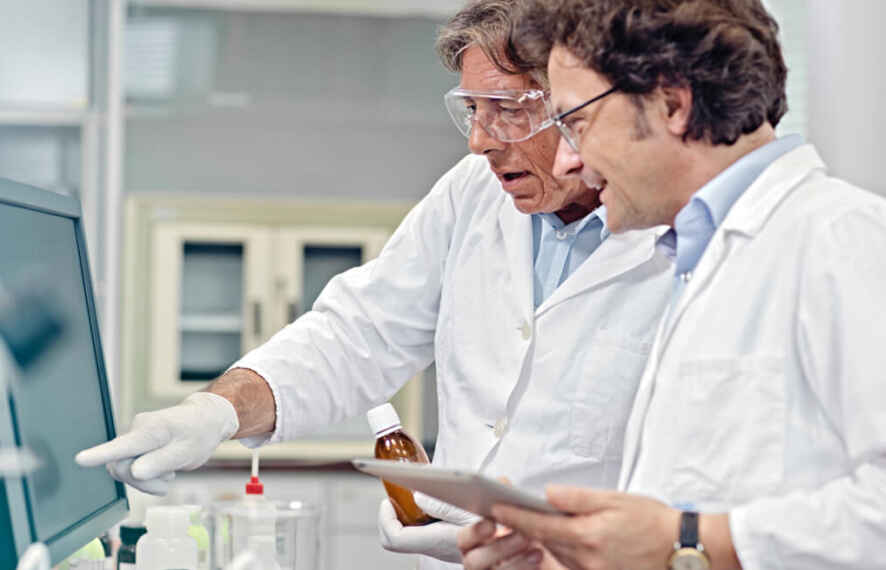
ASU Innovations continue to flood the market, with boost from Skysong Innovations
What was once a trickle is now a flood.
In 2018, researchers at Arizona State University disclosed 285 inventions to Skysong Innovations, the university’s exclusive technology transfer organization. This record number of disclosures allowed Skysong Innovations to achieve new benchmarks in technology commercialization, with 123 U.S. patents issued, 78 license and option agreements signed, and 17 new startups launched.


“By every metric, Skysong Innovations has built a tech transfer organization that stands as a leader among the top research institutions,” said Sethuraman “Panch” Panchanathan, NSF Director. “There is simply no better university anywhere for researchers with ideas that can change the world.”
All this activity is generating substantial local economic impact. Recently, the Seidman Research Institute examined ASU’s tech transfer impact between 2016 and 2018. As a result of the operations of Skysong Innovations and 40 ASU-linked companies, Arizona’s economy gained a cumulative:
- $402.8 million in gross state product
- $271.6 million in labor income
- 4,152 job-years
- $36.4 million in state and local tax revenues
In total, the cumulative economic impacts of these entities is projected to exceed $1.2 billion by 2022.

A patent powerhouse
The 123 issued U.S. patents almost doubled the number achieved at ASU as recently as 2016. A new report by the U.S. National Academy of Inventors and the Intellectual Property Owners Association now places ASU in the top 20 of all universities worldwide for U.S. patents awarded. ASU jumped 8 spots in the new rankings, ahead of Columbia University, University of Washington and Duke University. Other universities ranked alongside ASU in the top 20 include MIT, Stanford University, Johns Hopkins University, Harvard and Caltech.


“The rate at which ASU is producing high-quality innovations is a testament to both the caliber of the university’s knowledge enterprise and the success of our technology transfer model, which fast-tracks research from lab benches to commercial application,” said Augie Cheng, CEO of Skysong Innovations, which manages ASU’s technology portfolio.
Download a print version of the 2018 annual report.
ASU startups continue to attract venture funding

ASU’s track record of producing and promoting successful startups now extends more than a decade. In FY18, ASU-linked companies received over $50.5 million in total venture funding, bringing the total amount of funding raised by ASU-linked startups to almost three-quarters of a billion dollars.
To help other startups address their capital needs, Skysong Innovations launched a new acceleration program for ASU spinouts in FY18. All startups in the program go through a 14-week professional mentorship program supported by the office of E+I (part of Knowledge Enterprise Development) and the ASU Venture Devils. Up to six startups may also be selected for a $20,000 seed investment, with the potential for one startup to be awarded an additional $30,000 at the end of the acceleration period.
The ASU California Center continues to be the Southern California hub for Skysong Innovation’s entrepreneurial activities, providing exposure for ASU and facilitating meetings and contacts with the investment community. In FY18, Skysong Innovations and the Los Angeles Venture Association (LAVA) collaborated to host 19 events, including three SoCal Startup Mill pitch meetings. The SoCal Startup Mill has now grown to a network of 17 accomplished entrepreneurs and business executives.
In 2018, Skysong Innovations became the only non-local university member of the Alliance for SoCal Innovation. This group links innovators to capital and experienced operators throughout California.
The Alliance’s launch event drew over 160 attendees, including more than 50 venture investors. A diverse blend of entrepreneurs, executives and innovators also came to connect with representatives of SoCal’s innovation centers and to learn how to access these emerging opportunities.
Of more than 90 university startup applicants, only four were selected to present, including the ASU startup Charlot Biosciences. Charlot, which develops novel cell sorting equipment, is currently in negotiations with several Silicon Valley venture funds.
A center of healthcare innovation
A February paper published in the Nature journal of Biotechnology detailed how the efforts of two researchers at the ASU Biodesign Institute are pioneering developments in “DNA origami”: lab-engineered, self-folding DNA nanostructures that can be programmed to fight cancer and other infectious diseases, radically transforming how medical therapies are delivered.
ASU has optioned its rights to the technology to a new startup company called Nanobot Biosciences, which is working to develop nano-sized robots that can navigate the human body through the bloodstream to deliver treatments.


Professors Yung Chang and Hao Yan’s research teams are now setting their sights on the groundbreaking potential their work might carry within and beyond the medical community. Their discoveries could generate unprecedented solutions for some of the most complex problems in nutrition, agriculture, biosustainability, energy and even defense.
In the realm of laboratory medicine, ASU’s 100th spinout company, Gemneo Bioscience, garnered acclaim when it won a Flinn Foundation Entrepreneurship Award this March. Gemneo’s platforms are directed to identifying patients’ idiosyncratic disease cell and immune cell “signatures” and generating profiles that recommend immunotherapies oriented toward each patient’s specific illness and immune system traits.
Two additional ASU-linked startups received FDA clearance for clinical applications. Endovantage simulates the effect endovascular implantations and subsequent blood flow changes will have in a patient’s body, aiding surgeons and medical device manufacturers. NeoLight’s portable phototherapy beds are being used in the U.S. and developing countries to treat jaundice, which can be fatal in infants.
Other FY18 highlights
- Skysong Innovations helped launch the ASU Thunderbird Investor Network, linking ASU students, faculty, and staff with a committed network of potential investors.
- Advent Diamond was awarded an NSF SBIR grant for $225,000 to conduct work on advancing single-crystal diamond diodes capable of operating at high temperature and power.
- Aural Analytics, which develops objective measures of clinical change that track with neurological health, won a prestigious Scrip Award for Best Technological Development in Clinical Trials.
- CYR3CON signed a contract with a Fortune 500 company to provide automated capture and analysis of deep and dark web data that predicts cybersecurity threats and vulnerabilities.
- Stephen Albert Johnston, who founded Calviri to create cancer vaccines, received a $6.4 million grant from the Open Philanthropy to support the largesSkysong Innovations helped launch the ASU Thunderbird Investor Network, linking ASU students, faculty, and staff with a committed network of potential investors.
- Advent Diamond was awarded an NSF SBIR grant for $225,000 to conduct work on advancing single-crystal diamond diodes capable of operating at high temperature and power.
- Aural Analytics, which develops objective measures of clinical change that track with neurological health, won a prestigious Scrip Award for Best Technological Development in Clinical Trials.
- CYR3CON signed a contract with a Fortune 500 company to provide automated capture and analysis of deep and dark web data that predicts cybersecurity threats and vulnerabilities.
- Stephen Albert Johnston, who founded Calviri to create cancer vaccines, received a $6.4 million grant from the Open Philanthropy to support the largest-ever interventional canine clinical trial.t-ever interventional canine clinical trial.
Startups launched in 2018
- Vantronics, LLC
Vanishing electronics for biological monitoring and treatment - Charlot Biosciences, Inc.
Analytical instrumentation able to predict signatures of disease through the study of living cells - Mastrik, LLC
Portable laser-based measurement system - Obeo Wellbeing, LLC
Transforming mental health science into consumer-focused solutions to improve youth, family, and community wellbeing - idLink.io, LLC
Contact-free, biometric identity management and physiological data acquisition for health monitoring - Xtretch Technologies, LLC
Stretchable battery technology for wearable electronics - Pricewise Analytics, LLC
Algorithms that calculate optimal pricing for businesses that market complex product lines - CyNET, LLC
Cybersecurity, network intrusion detection, and intelligent security in virtual network systems - GreyDyne, LLC
Seizure detection and prediction - NodRive, LLC
Integrated device for automated detection of pathogenic E. coli - Teuvonet Technologies, LLC
Integrating machine learning and artificial intelligence with the Internet of Things - IDTX, LLC
Diagnostic devices embedded with biomolecular computing, initially targeted to combat the Zika virus - Nanobot Biosciences, Inc.
Robotic drug delivery platform - Precient Technologies, LLC
Bioreactor membrane able to remove and harvest Platinum Group Metals (PGMs) - Artis Looking Glass, LLC
Proprietary machine learning and artificial intelligence for online and social media sources - Hoolest Performance Technologies
Drug-free technologies that reduce performance anxiety treatment - Indie Financials, LLC
Financial modeling tool for independent filmmakers